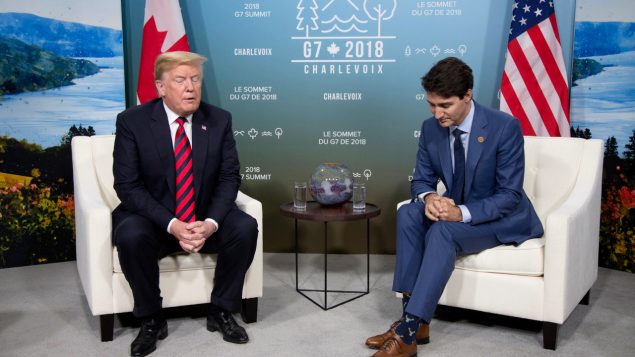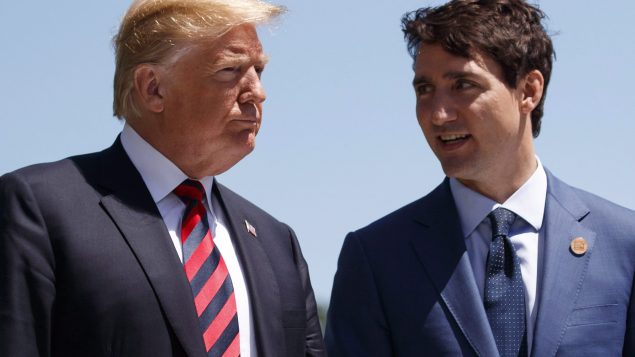Prime Minister Justin Trudeau faces a tough sales job as he tries to rally world leaders gathering in Buenos Aires on Friday to support Canada’s priorities of advancing gender equality, fighting climate change, protecting oceans and investing in clean energy, says a Canadian expert.
Trudeau, accompanied by Foreign Affairs Minister Chrystia Freeland and Finance Minister Bill Morneau, will attend the summit of the Group of Twenty (G20) leaders in the Argentinian capital from Nov. 29 to Dec. 1, the Prime Minister’s Office announced Monday.
“No matter where we live, our fortunes are in some way tied together. So are the challenges we face,” Trudeau said in a statement. “I look forward to joining fellow G20 leaders in Buenos Aires to build on the progress made at G7 to fight climate change, advance gender equality, and strengthen the middle class and offer real help to people working hard to join it.”
Trudeau will have an even tougher job of selling Canada’s democratic values and respect for human rights to Russian President Vladimir Putin, Chinese President Xi Jinping and Saudi Arabia’s Crown Prince Mohammed bin Salman, who will be sitting across the table from him, said John Kirton, director of the G7 and G20 Research Groups at the University of Toronto.
“It’s going to be tough going for Trudeau to keep his priorities on track even if he’ll get good support from President Macron of France and the great G20 veteran Chancellor Angela Merkel of Germany,” Kirton said in a phone interview from Buenos Aires.
ListenClimate change, trade wars, Yemen famine, may trump Argentinian priorities
Summit host Argentinian President Mauricio Macri would like to focus the summit on three priorities Argentina set about a year ago, Kirton said.
Macri’s first priority is creating financial instruments to promote private sector investment in infrastructure projects. Facing a financial crisis, Argentina is also pushing for measures aimed at generating jobs. And Macri’s third priority is food security, Kirton said.
However, the big challenge for President Macri is that none of his top three priorities are top of the mind for the rest of the world, Kirton said.
“The world is really focussed on climate change, the climate crisis in the wake of the recent report of the Intergovernmental Panel on Climate Change (IPCC), other folks have the trade war between Donald Trump and President Xi of China, and indeed Trump’s protectionist assaults on many other countries, including his G7 partners,” Kirton said.
“And then there is the starvation facing eight million people in Yemen, the meltdown in Venezuela, and over the past 24 hours, the eruption of a naval conflict between Russian and Ukraine over Crimea once again.”
Possible meeting with Trump

Canada’s Prime Minister Justin Trudeau (R) meets with U.S. President Donald Trump during the G7 Summit in the Charlevoix town of La Malbaie, Quebec, Canada, June 8, 2018. Photo taken June 8, 2018. (Christinne Muschi/REUTERS)
Trudeau is also expected to have his first face-to-face meeting with U.S. President Donald Trump following their falling out at the G7 summit in Charlevoix in June and a rather awkward encounter in New York in September, on the sidelines of the UN General Assembly.
Kirton said it’s quite possible that Trudeau, Trump and outgoing Mexican President Enrique Peña Nieto will officially sign the renegotiated U.S.-Mexico-Canada Agreement (USMCA) in Buenos Aires, putting some of the underlying tensions behind them.
“But it’s tough politics because these summits are very much about sending a pretty picture to the people back home and Trudeau might not want to appear to stand side by side with Donald Trump not knowing what mood the president is going to be in,” Kirton said.
The PMO said they are still working on confirming Trudeau’s bilateral meetings with other world leaders on the sidelines of the summit.
“Our job as a government is to safeguard economic gains and prevent economic threats, and that is what we’ve done with the new agreement,” said Trudeau’s press secretary Matt Pascuzzo, referring to the USMCA. “Discussion and work about the signing is ongoing.”







For reasons beyond our control, and for an undetermined period of time, our comment section is now closed. However, our social networks remain open to your contributions.